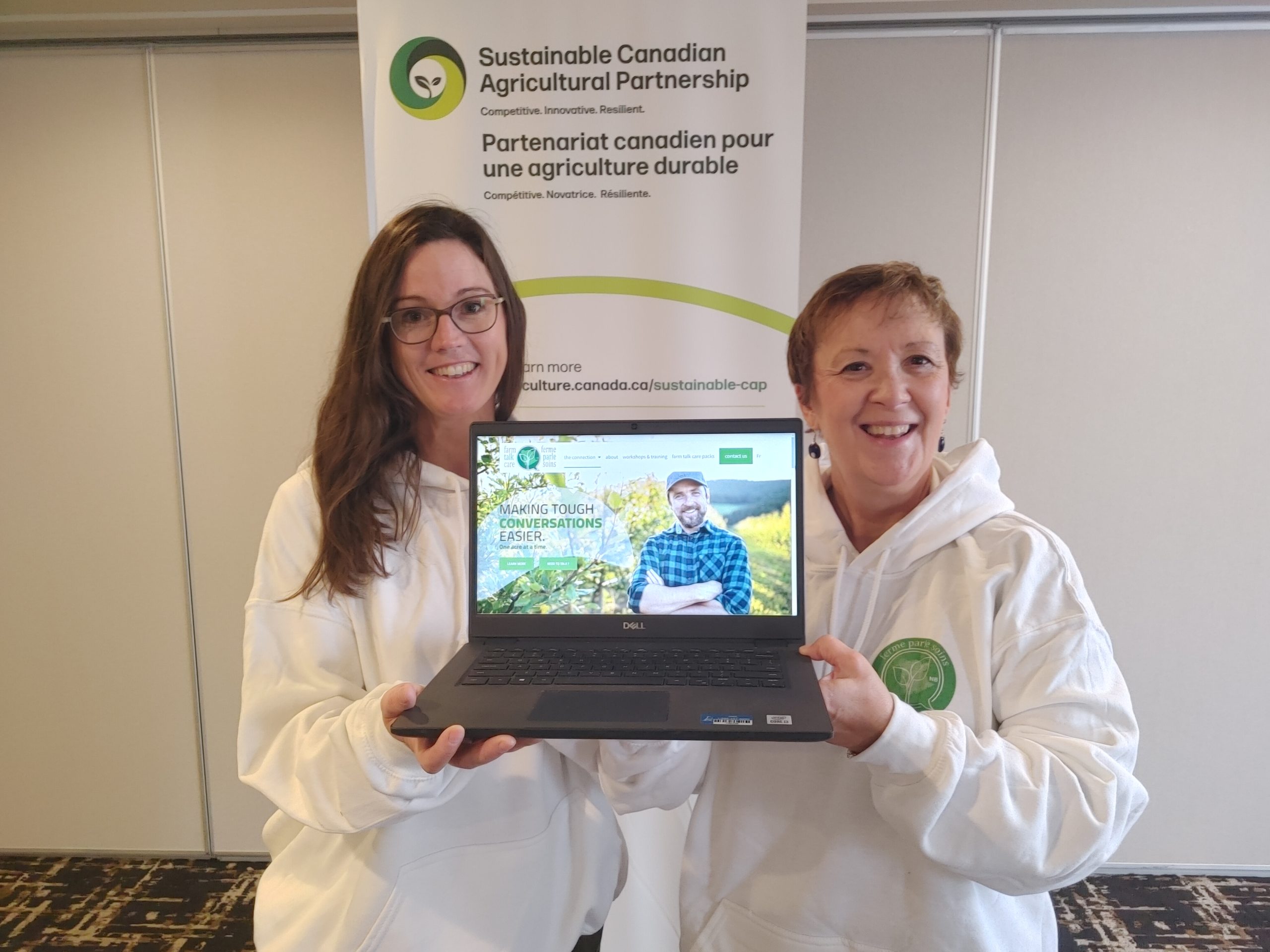October 26th, 2016
Background
The National Farmers Union in NB has been advocating the benefits of local food for nearly a decade. Countless meetings fell on deaf ears, when a response was repeatedly given that with a population as small as NB, we had to export.
Today only 8% of our vegetables grown in the province, and we are only self-sufficient in our supply managed commodities (dairy, chicken, eggs, and turkey). Potatoes, wild blueberries, maple syrup and seafood are all produced in abundance but some of these NB produced foods can be difficult to find at local grocers. Now that many other provinces and states have invested in local food and seen increased health and economic benefits in their regions, our government has, in typical NB fashion, cautiously paddled our life raft over a decade later – rather than being an early adopter and jumping right in.
The NFU supported the Local Food Security Bill that was put forward in 2015 by MLA David Coon, it was defeated by the current government, and instead a strategy was developed over the next 1.5 years. While it is far from ideal, the NFU agreed to participate in the process. We are pleased that a Local Food and Beverages Strategy has been announced, and will be even more pleased when we see it being actively implemented by all departments, including the Premier’s office.
NFU-NB provides the following recommendations to make this strategy meaningful for farmers
- Improve consumer awareness of local food and beverages
The logo needs a strategic awareness plan and full budget so that the logo launches in a timely fashion, is quickly recognizable by consumers and is easily accessible to farmers and businesses looking to implement it.
NFU-NB: can participate in meetings and provide stakeholder feedback as the guideline are developed
Local products directory is really wonderful and the CCNB has done a lot of work to this point. More funding for promotions and upkeep of this important resource are essential. Further collaboration between THC and DAAF needs to be undertaken to ensure that tourismnewbrunswick.ca has the correct links to buylocalnb.ca and that it is a featured part of the tourism strategy.
NFU-NB: will continue to work on the Farmers Market Map project and collaborate with CCNB on this.
52 Week Local Food Challenge. Last year, the NFU-NB pitched an idea to start a 52 week local food challenge to get New Brunswickers to commit to buying one new produced in NB food every week for a whole year. Funding was requested for this project and was not dedicated at the time. We believe this type of consumer focused initiative would be fun, creative, and would be a huge teaching tool and resource for New Brunswickers to learn which local foods are available in the province year-round.
The Measure of Success for this objective needs to go beyond awareness and translate into change in buying habits. The measures developed by DAAF staff to track production and consumption of NB produced foods could be used annually to note and report publically on any changes.
- Improved availability of Local Food and Beverages
Government needs to lead by example and fully implementing Policy AD-1709 is a good first step.
Increasing the Grocery Wine Pilot program and number of farmers markets that are pre-approved for local wines is a good first step – see related recommendations in next section.
Local food procurement in schools is a logical target, based on the success of CeD’ici, the TFA and the reports that have been done based on their models. Details and timelines need to be provided on how to meet the current target of 30%. Supports need to be in place with current Farm to school programs, including the TFA program. This target should be replicated in hospitals, senior care homes, daycares and other public institutions, and the NFU recommends that it move forward simultaneously – rather than waiting to evaluate the results of the “medium to long term goal” for the 30% in the schools.
Fundraising through local food in schools has been very successful in Manitoba and Ontario. This is a great initiative for farmers to sell crops, for schools to raise money and for all involved to learn more about local NB produce.
NFU-NB: has done comprehensive research in this area from two years ago that we are happy to share. We have farmers in various areas who have expressed interest in participating in similar programs.
While there has been significant increase in farmers market sales, CSA’s and community gardens, these options still remain on the periphery. Most NBers shop at grocery stores. A local food strategy needs to include main grocery stores to reach all consumers. How can this collaboration be fostered and genuine so that consumers have confidence in buying NB grown food from major grocery chains?
- Improved support for New or Expanding Food and Beverage Enterprises
Release of the Farming in New Brunswick: A Roadmap for New Entrants took place in July 2016. Interestingly the State of Maine has seen a 40% increase in new farmers between their 2007 and 2012 census. In a call with the Maine Beginning Farmer Resource Network – a fully funded collaborative venture between government, the University of Maine and NGOs – it was learnt that a similar document was created in Maine. A full time staff person travelled around the state making presentations, based on the document, to middle schools, high schools, community colleges and universities about the opportunities in agriculture. This needs to be a living document that can be used to recruit new farmers both in NB as well as outside of the province.
More support needs to be in place for new farmers. A mentorship program is a good first step but this needs to go beyond one program. This involves reviewing new entrant loan programs, funding programs, training programs, available inventories of farmland in NB, and much more. Working with PETL would be essential – having training sessions for PETL career counsellors so they are more aware of opportunities in farming. Creating a type of funding structure that would allow future farmers to access funds
Support for craft wine and microbrewery sectors. At least three NFU members have raised concerns with our office about the challenges they have faced getting response from ANBL with regards to cottage winery applications, labeling, follow-up on contracts that have already been signed. Many have been told that there is no interest in bringing in additional NB products because the margin on imported product is much higher for the Crown Corporation.
Recommendations: More staff people to answer calls / respond to inquiries in a timely fashion (three months is too long). Mandated commitment to local wines, beers, and alcohols, so that local product is prioritized and featured in NB Liquor stores.
General recommendations
- Strike an ongoing interdepartmental committee to track and oversee all the work of all departments to ensure pride and ownership of all actions
- Dedicate staff to the buy-achetez-NB logo
- Include funding for proper promotion of the buy-achetez-NB logo
- Begin developing new actions for beyond 2018 at the beginning of 2017, as many of the actions currently included have been either completed or are well underway




